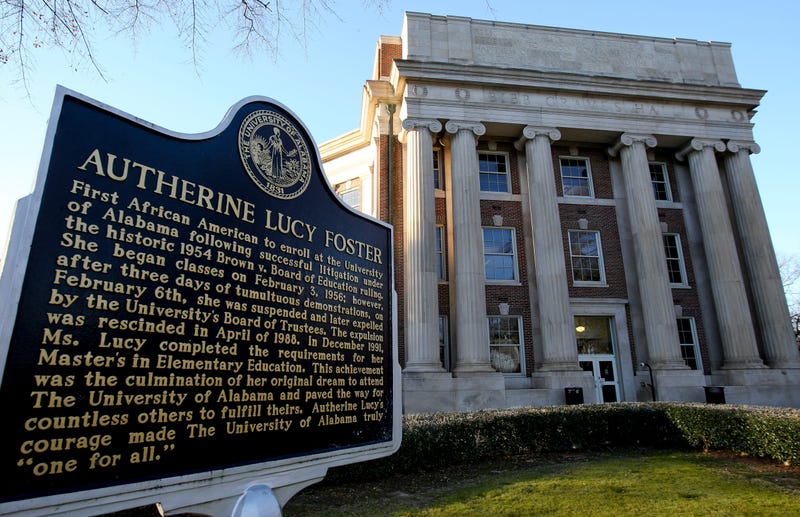The University of Alabama is renaming a building named after a member of the Ku Klux Klan hate group in honor of its first Black student.
Autherine Lucy Foster, now 92, was that first Black student at university. She was mobbed and bombarded with rotten eggs during her first days of graduate school there after fighting for four years to get in.
Now, 70 years after the activist and teacher applied for admission, she will be honored with a building named Autherine Lucy Hall.
However, the road to celebrating Lucy has been a rocky one, as was her experience at the school.
A graduate of Miles College in Fairfield, Ala., Lucy was convinced by a college friend to apply for the graduate program at the University of Alabama in 1952. From its founding in 1931, the school had an unwritten “whites only” policy, according to The National Museum for African American History and Culture at The Smithsonian.
While the school initially accepted their letters of inquiry, their acceptance was revoked when the two women filled out applications that included their race.
Arthur Shores and Thurgood Marshall, prominent African American civil rights lawyers, then went to work on behalf of Lucy and the other applicant, Pollie Myers. Eventually Lucy was accepted into the institution and began class in February 1956.
Days later, after being attacked by a mob shouting hate-filled epithets, Lucy found herself praying in a locked room, fearing for her life. A patrol car had to take her home and later that night the university's Board of Trustees voted to remove Lucy, claiming it was for her own protection.
She was later expelled for defaming the institution. The University of Alabama reversed the expulsion in 1988 and Lucy graduated in 1992 with her master’s degree.
By the 1960s, the university began accepting other Black students.
Autherine Lucy Hall
According to Alabama.com, the building to be named after Lucy is currently named after Bibb Graves, a former Alabama governor who was a member of the KKK. Though he ended up renouncing the hate group, his ties to it ran “deep,” said the outlet.
Other institutions in Alabama have removed his name from buildings.
Before settling on Autherine Lucy Hall, the University of Alabama System’s Board of Trustees initially suggested naming the building Lucy-Graves Hall.
This recommendation was met with public outcry.
“If you’re going to give her credit. You have to give it all to her. She endured a lot more than any student that has ever gone to UA probably has,” said Barbara Whitesell, a December 2021 graduate.
“It felt that even her legacy, no matter what accolades she had previously as a Black woman, it did not matter. She had to share the indignity of being on a building name hyphenated with a Klansmen,” said Hilary Green, an associate history professor. She said one student felt it was like “a slap in the face.”
“I find it really odd to say, ‘We’re going to honor this first pioneering student of the university who is a victim of racial terror by sharing a name of a building with an architect of racial terror,’” said Kirt von Daacke, a professor of history at the University of Virginia.
A working group developed in 2020 by the university board of trustees and president pro tempore made the recommendation. The group has worked to remove other namesakes and plaques of Confederate soldiers from the school.
“This has been a challenging time,” Judge John England Jr said during a special called trustees’ meeting Friday. “The working group, in making the recommendation, intended for that paired name of [Lucy-Graves Hall] to generate educational moments to help us learn from our rich, complex history. Well, somehow or another the honoring of Lucy Foster took to the background. That’s not what we wanted.”
Green said she hopes a better system can be implemented at the university for renaming buildings.



